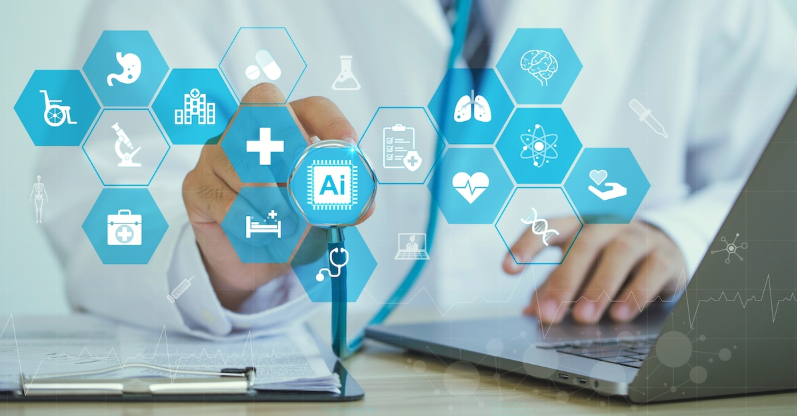The rise of generative AI in healthcare is no longer a distant trend — it’s a shift happening right now inside clinics, hospitals, and health systems. For electronic health record (EHR) vendors, the opportunity is clear: use AI to help clinicians spend less time wrestling with documentation and more time caring for patients.
Over the past year, several of the industry’s largest EHR providers have unveiled or expanded AI-driven features aimed at streamlining workflows, improving accuracy, and reducing administrative fatigue. While each company has its own approach, the common thread is using generative AI to make the EHR a more intuitive, supportive tool rather than an administrative burden.
Here’s a closer look at how four major EHR vendors are integrating generative AI into their platforms and what it means for the future of healthcare.
1. Epic Systems: AI-Enhanced Documentation and In-Basket Management
Epic, the largest EHR vendor in the U.S., has been steadily incorporating AI into its platform for years, but recent advancements in generative AI have accelerated its capabilities. The company has partnered with Microsoft and Nuance to bring more advanced AI-powered features to its users.
One of Epic’s most talked-about enhancements is ambient documentation. Through integration with Nuance’s Dragon Ambient eXperience (DAX) Copilot, Epic enables clinicians to capture patient encounters in real time without typing. The system listens to the conversation, generates a structured clinical note, and places it directly into the patient’s chart for review and approval.
Beyond note-taking, Epic has also rolled out AI-assisted in-basket management, allowing physicians to draft responses to patient messages automatically. Clinicians can then edit and approve these drafts, significantly reducing inbox workload.
Epic’s approach emphasizes tight integration within existing workflows, so users don’t have to toggle between different applications. The AI is embedded directly into the Epic interface, making it feel like a natural extension of the EHR rather than an external add-on.
2. Oracle Health (Cerner): Predictive and Generative Insights at the Point of Care
Since acquiring Cerner, Oracle has been vocal about its plans to infuse AI into healthcare IT systems. Oracle Health is focusing on both predictive analytics and generative AI to support clinical decision-making.
One of its key initiatives is building real-time, AI-generated summaries for patient records. Instead of scrolling through pages of notes, lab results, and imaging reports, clinicians can get a concise, context-aware overview of a patient’s history. These summaries are designed to surface the most relevant details based on the clinical scenario, reducing cognitive load and speeding up decision-making.
Oracle Health is also experimenting with AI-powered order suggestions. By analyzing patterns in similar cases, the system can recommend likely diagnostic tests, treatments, or follow-up actions — all while ensuring the clinician remains in full control.
The company has also been working on voice-enabled charting and clinical data retrieval, allowing providers to simply ask the system for information (“Show me the latest A1C and blood pressure readings”) and receive immediate answers.
3. MEDITECH: Generative AI for Chart Summarization and Patient Communication
MEDITECH, known for its strong presence in community hospitals and health systems, has been leveraging generative AI in targeted ways that align with its user base’s needs. One of its standout features is chart summarization, where the AI quickly condenses a patient’s longitudinal record into an easily digestible narrative.
This capability is particularly useful for covering physicians or specialists seeing a patient for the first time. Instead of spending valuable minutes piecing together a complex history from multiple encounters, they can review a structured AI-generated summary that highlights key diagnoses, treatments, and changes over time.
MEDITECH has also introduced AI-assisted patient correspondence tools. For example, when a clinician needs to send follow-up instructions or educational material, the system can draft personalized messages based on the patient’s condition, medications, and care plan. The provider then reviews and customizes the draft before sending, ensuring accuracy and tone remain clinician-led.
4. athenahealth: Workflow Automation and Generative Drafting
athenahealth has taken a slightly different approach, focusing on reducing friction in repetitive administrative tasks through generative AI. Its platform can now help clinicians compose referral letters, prior authorization requests, and follow-up visit summaries with minimal manual input.
The AI draws from the patient’s chart, encounter notes, and relevant guidelines to generate a professional, fully formatted draft. For clinicians, this eliminates the need to start from scratch, while still allowing them to edit the content for precision and personal voice.
athenahealth is also piloting real-time coding support, where AI reviews encounter documentation and suggests appropriate billing codes, complete with rationale. This not only speeds up the billing process but can help reduce errors that lead to claim denials.
By embedding these capabilities directly into its cloud-based platform, athenahealth ensures updates and new AI features can roll out quickly to clients without lengthy installation processes.
Why Generative AI in EHRs Matters
The push toward generative AI in clinical workflows is about more than convenience. It’s about tackling some of the most persistent problems in healthcare delivery:
Physician Burnout — By automating routine documentation, AI can give providers more face-to-face time with patients and less after-hours “pajama time” completing charts.
Clinical Accuracy — Well-trained AI systems can reduce omissions and inconsistencies by pulling structured data directly from the conversation or record.
Patient Satisfaction — When clinicians are less distracted by data entry, patients perceive visits as more personal and attentive.
Operational Efficiency — Faster documentation and coding can improve billing cycles and revenue capture for health systems.
Still, experts caution that generative AI is not a silver bullet. Proper oversight, clinician review, and robust privacy protections are essential. AI-generated content must always be verified by a qualified human before it becomes part of the permanent medical record.
Challenges and Considerations
While the benefits are compelling, integrating generative AI into EHR workflows is not without hurdles:
Data Privacy and Security — AI systems must meet strict regulatory standards, including HIPAA compliance, to protect sensitive health information.
Bias and Accuracy — AI models are only as good as the data they’re trained on. Vendors must work to minimize bias and ensure equitable performance across diverse patient populations.
User Adoption — Clinicians need to trust the technology and feel confident it will save them time rather than add complexity.
Cost and ROI — Implementing AI at scale requires upfront investment, and health systems will expect measurable returns in efficiency, revenue, or quality outcomes.
The Road Ahead
Generative AI is likely to become a standard feature in EHR platforms over the next few years. As the technology matures, it may evolve from handling discrete tasks — like note-taking or summarization — to orchestrating entire care workflows, from pre-visit preparation to post-visit follow-up.
For now, the focus remains on solving immediate, high-impact pain points for clinicians. The four vendors highlighted here are taking slightly different paths, but they share a commitment to making the EHR work for the user, not the other way around.






































